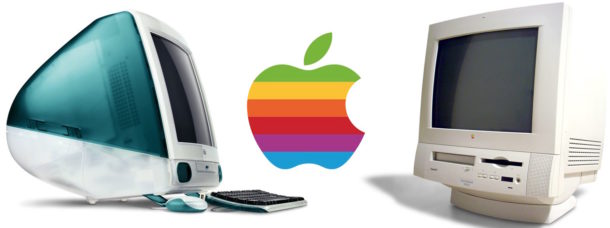Download Rosetta Stone: Learn Languages for macOS 10.15 or later and enjoy it on your Mac. We believe anyone can learn another language. We’re not saying fluency comes easily or overnight (and you should question anyone who tells you otherwise). But we can show you how by making a plan with your motivation in mind. Rosetta Stone TOTALe 5 Crack Download only at a2zcrack. So you have support of audio packs for a fluent pronunciation & expression of a language. In this downloading website. So you will get the crack to activate Rosetta Stone TOTALe 5 Crack download for Windows x86 & x64 Setup Installer Rosetta Stone 5 Crack for Mac.
KEYWORDS: CORE_CONCEPTS GENERAL
See also the Rosetta build/install documentation here.
- Compiling Rosetta
For any academic or commercial use, you need to request a license. Obtaining a license is free for academic users. After you obtained the license, you can download Rosetta. Make sure you download the version corresponding to the license you have. When you click, you can see the latest numbered release as well as several weekly releases. Numbered releases (since Rosetta3.6) are simply weekly releases that have been specially labeled - all weekly releases pass the same suite of tests that the numbered releases do.
For many version, we offer both a source and a binary version. The binary version may allow you to skip the compilation stage, but are more limited in the platforms on which they work. The 'source' distribution should be useful on all platforms on which Rosetta can run. (If you're interested in noncanonical amino acids, download the NCAA rotamer libraries as well.)
The downloaded file is in form of tar archive with .tgz extension. In a linux or mac, you can untar/uncompress the file by either double clicking on it or run this command in your terminal:
Unfortunately, currently there is no support for the whole Rosetta on Windows. Dual booting or virtual machines running Linux/MacOS are options.

Open the file that you unzipped and navigate through the folders: Rosetta -> main -> source or use the following bash command:
If you downloaded the source bundle, you can see that the bin/ directory is currently empty. In order to be able to run Rosetta, you need to first compile the code.
To compile Rosetta you need a C++ compiler. Rosetta developers typically use GCC or Clang, although other standard-compliant compilers can be used. (See Install a complier for more information on installing a compiler.)
Rosetta uses SCons as a build system. While Scons is available as a separate download, the Rosetta download includes a version, which is the recommended version to use in compiling Rosetta.
Now you can build Rosetta using this general command line (make sure you are in the source folder)
-j is indicating how many cores you want to use. This number depends on your computer. For example the command below uses 20 cores to build:
Expect a long time for the compilation to finish, several hours on one core.
Now look at your source folder. There are several new folders in it, including bin. You can now run Rosetta!
More Options for Building
As you noticed, the command you ran had a 'mode' option and that you mentioned 'bin' specifically. There are several other flags and modes that you can use to build certain parts or features.

modes:
- mode=release compiles with optimizations to produce a faster version of Rosetta.
- mode=debug (or not mentioning any mode) includes additional checks which slows down Rosetta runs. It is mostly used for development and debugging purposes.
specifying which parts to build
- empty: if you don't provide any location, by default only the libraries will be built.
- 'bin': complete compilation of all applications in the bin/ directory
- 'bin/rosetta_scripts.default.linuxgccrelease' or 'rosetta_scripts': only compiles the mentioned application (multiple can be listed)
extras
- 'extras=static': builds static binaries. This can be useful for copying and running the apps on other systems.
- 'extras=graphics': mode enables OpenGL graphics for those apps that support it.
- 'extras=opencl': enables GPU usage for those apps that support it
- 'extras=mpi' compiles Rosetta in MPI Massage Passing Interface format (for those executables that support MPI runs). Running Rosetta in MPI mode requires (potentially non-trivial) edits to the site.settings files.
For example the code below compiles only the rosetta_scripts application in MPI format and release mode using 5 cores:
NOTE when you build with different extras, the extension will change. For example if you use extras=mpi, you use rosetta_scripts.mpi.linuxgccrelease instead of rosetta_scripts.default.linuxgccrelease
- Compiler specification
- by default scons builds Rosetta using the GCC compiler. However you can specify what compiler and version you wish to use by using 'cxx'. For example the command below builds Rosetta completely in release mode using clang compiler version 4.5 using 10 cores:
If you are interested in working with Rosetta code, you can build Rosetta using the Rosetta Xcode project. You can use it to build, run, debug, browse, and edit the source code. You can find the instructions on how to use Xcode to build Rosetta here.
PyRosetta is an interactive Python-based interface to Rosetta, allowing users to create custom molecular modeling algorithms with Rosetta sampling and scoring functions using Python scripting. PyRosetta was written for Python 2.6. You can follow instructions to download and install PyRosetta here and here.
Download Rosetta Stone Version 4 For Mac
As part of the XSEDE initiative, the TACC/Stampede cluster has Rosetta and PyRosetta centrally installed for authorized users.
For Macs, install the XCode development packages. Even though you won't be compiling Rosetta through XCode, installing it will also install a compiler. (Clang, for recent versions of MacOS.)
For Linux, you will want to install the compiler package from your package management system. For Ubuntu and similar systems, the package 'build-essential' can be installed with a command like sudo apt-get install build-essential.
Please check the Rosetta build documentation for details on common errors that will come up during installation and how to deal with them.
PowerPC application (Microsoft Word for Mac 2004) running on OS X for Intel in Rosetta | |
| Developer(s) | Apple Inc. |
|---|---|
| Operating system | Mac OS X 10.4.4–10.6.8 (Intel) macOS Big Sur 11.0–present (ARM) |
| Type | PowerPCbinary translation (original version) Intel binary translation (Rosetta 2) |
| Website | www.apple.com/asia/rosetta/ |
Rosetta is a dynamic binary translator developed by Apple Inc. for macOS, an application compatibility layer between different CPU architectures. It gives developers and consumers a transition period in which to update their application software to run on newer hardware.
The first version of Rosetta, introduced in 2006, allows PowerPC applications to run on Intel-based Macs. The second version, introduced in 2020, is a component of macOS Big Sur to aid in the Mac transition to Apple Silicon from Intel processors.[1] The name 'Rosetta' is a reference to the Rosetta Stone, the artifact which enabled translation of Egyptian hieroglyphs.[2]
Rosetta[edit]
| Mac transition to Intel processors |
|---|
Apple released the first version of Rosetta in 2006 when it changed the instruction set architecture of the Macintoshplatform from the PowerPC to the Intel processor. It was initially included with Mac OS X v10.4.4 'Tiger', the version that was released with the first Intel-based Macs, and allows many PowerPC applications to run on certain Intel-based Mac computers without modification. Rosetta is based on QuickTransit technology.[3] It has no graphical user interface, which led Apple to describe Rosetta as 'the most amazing software you'll never see'.[4] Rosetta is not installed by default in Mac OS X v10.6 'Snow Leopard', but can be retained as an option via the installer or Apple Software Update.[5] Rosetta is neither included nor supported in Mac OS X v10.7 'Lion' or later, which therefore cannot run PowerPC applications.[5]

Rosetta translates G3, G4, and AltiVec instructions, but not G5 instructions. Although most commercial software for PowerPC-based Macs were compatible with these requirements, any applications that relied on G5-specific instruction sets had to be modified by their developers to work on Rosetta-supported Intel-based Macs. Apple advised that applications with heavy user interaction but low computational needs (such as word processors) would be best suited to Rosetta, while applications with high computational needs (such as AutoCAD, games, or Adobe Photoshop) would not.[6]
Rosetta also does not support the following:[7]
- The Classic environment, and thus any non-Carbon application built for Mac OS 9 or earlier
- Code that inserts preferences into the System Preferences pane
- Applications that require precise exception handling
- Screen savers
- Kernel extensions and applications that depend on them
- Bundled Java applications or Java applications with JNI libraries that cannot be translated
- Java applets in Rosetta-translated applications, meaning that a native Intel web browser application, rather than a legacy PowerPC version, must be used to load Java applets
The reason for Rosetta's reduced compatibility compared to Apple's earlier 68k emulator for PPCs lies within its implementation. Rosetta is a user-level program and can only intercept and emulate user-level code. By contrast, the 68k emulator accesses the very lowest levels of the OS by being at the same level as, and tightly connected to, the Mac OS nanokernel on PPC Macs, which means that the nanokernel is able to intercept PowerPC interrupts, translate them to 68k interrupts (then doing a mixed mode switch, if necessary), and then execute 68k code to handle the interrupts. This allows lines of 68k and PPC code to be interspersed within the same fat binary.
Rosetta 2[edit]
| Mac transition to Apple Silicon |
|---|
Rosetta 2 is included as of macOS Big Sur to aid in the Mac transition to Apple Silicon from Intel processors.[1][8] In addition to the just-in-time (JIT) translation support available in Rosetta, Rosetta 2 includes support for translating an application at installation time.[9]
Download Rosetta For Mac Free
See also[edit]
- Universal binary – combined PPC/Intel applications that run natively on both processors
- Fat binary § Apple's fat binary – combined PPC/68k application that ran on older Macintoshes

References[edit]
- ^ abWarren, Tom (June 22, 2020). 'Apple is switching Macs to its own processors starting later this year'. The Verge. Retrieved June 22, 2020.
- ^Core Duo iMacs debut speedy new chipsArchived March 3, 2012, at the Wayback Machine
- ^'The brains behind Apple's Rosetta: Transitive'. CNET News.com. June 8, 2005. Archived from the original on July 14, 2014. Retrieved July 4, 2007.
- ^'Rosetta'. Apple. Archived from the original on November 16, 2010. Retrieved September 5, 2011.
- ^ abAppleInsider Staff (February 26, 2011). 'Mac OS X Lion drops Front Row, Java runtime, Rosetta'. AppleInsider. AppleInsider, Inc. Archived from the original on April 29, 2014. Retrieved February 27, 2011.
- ^'Rosetta'(PDF). Universal Binary Programming Guidelines, Second Edition. Apple. Archived from the original(PDF) on August 3, 2012. Retrieved September 5, 2011.
- ^'What Can Be Translated?'(PDF). Universal Binary Programming Guidelines, Second Edition. Apple. Archived from the original(PDF) on August 3, 2012. Retrieved September 5, 2011.
- ^Mayo, Benjamin (June 22, 2020). 'Apple announces Mac architecture transition from Intel to its own ARM chips, offers emulation path'. 9to5Mac. Retrieved June 23, 2020.
- ^WWDC2020 Keynote. Apple Inc. June 22, 2020. Event occurs at 1h39m37s.
It translates the apps when you install them, so they can launch immediately and can be instantly responsive. And Rosetta 2 can also translate code on the fly when needed.
External links[edit]
- Apple Rosetta Web site at the Wayback Machine (archived January 7, 2011)
- Transitive Corporation web site at the Wayback Machine (archived September 14, 2008)
